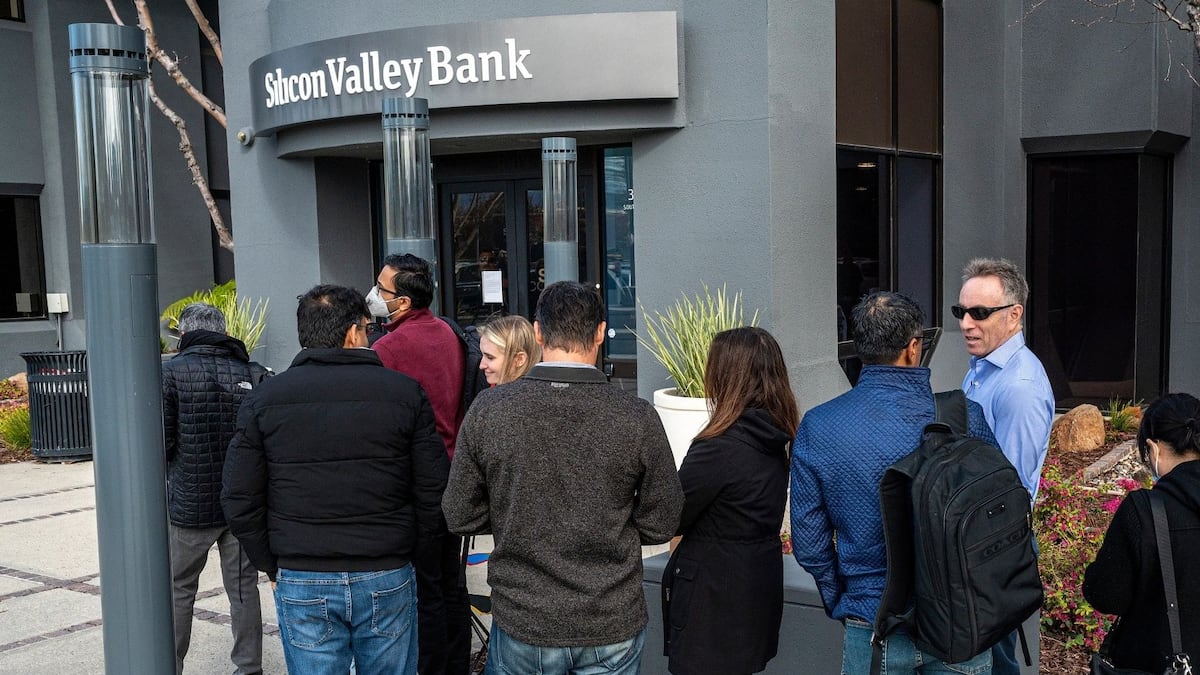The failure of a bank is always a failure for the financial supervisor.
The Federal Reserve has blamed the bankruptcy of the Californian Silicon Valley Bank and the New York Signature Bank and has begun to examine its conscience.
Since the system has not worked, the central bank is considering how to improve supervision and toughen capital and liquidity requirements for medium-sized banks to prevent other similar cases.
The Federal Reserve already announced on Monday the launch of an investigation into the supervisory failures.
The process will be fast and the report with the conclusions will be published before May 1st.
“The developments surrounding Silicon Valley Bank (SVB) demand a thorough, transparent and expeditious review by the Federal Reserve,” said its president, Jerome H. Powell, through a statement.
“We need to be humble and conduct a careful and thorough review of how we supervise and regulate this firm, and what we need to learn from this experience,” added Vice President of Supervision Michael S. Barr, who leads the firm. revision.
The statement left little doubt that the Federal Reserve is considering how to improve its role, but the central bank is considering changes without even waiting for the results of the report.
The central bank's role in overseeing the financial sector is a mixture of regulation and supervision.
In 2018, under the impetus of the previous president, Donald Trump, a law was approved that relaxed the surveillance requirements on medium-sized banks with the idea that they were not systemic.
The reality has shown the opposite.
A bank like the SVB may not be systemic by itself, but it may be due to the possible contagion effect on the financial sector as a whole.
That rule reserved the toughest requirements only for entities with more than $250 billion in assets.
But beyond the legal change, the Federal Reserve itself eased capital and liquidity requirements for SVB and other midsize banks.
The supervisor was unable to successfully diagnose the risk implied by SVB's rapid growth, the strong dependence of its deposits on clients from a single sector (technology, with start-ups and venture capital
firms
as main clients) and the concentration of its investments in long-term securities (public debt and mortgage bonds) with which the entity assumed a strong interest rate risk.
It is notable that some independent financial analysts in their client reports had pointed out these weaknesses while the Federal Reserve remained unmoved.
As announced by The Wall Street Journal
on Tuesday
,
the supervisor is now considering imposing more stringent capital and liquidity requirements on medium-sized banks, mostly regionally located, as well as subjecting their balance sheets to theoretical stress tests (test test, a common monitoring tool) to see if these banks are prepared to face a recession or a sudden deterioration in economic conditions.
The medium does not specify what these new requirements will be or if they are individual requirements or a general rule.
In the spotlight are entities with assets between 100,000 and 250,000 million dollars.
In parallel, the president of the United States himself, Joe Biden, and numerous Democratic congressmen are calling for a tightening of the law, to re-impose the requirements of the Dodd-Frank law on medium-sized banks, from which they were exempted in 2018. That law, approved in 2010, was a response to the financial crisis of 2008. Its relaxation had the support of one of the congressmen who gave it its name, Barney Frank, who was a director of the intervened Signature Bank.
Massachusetts Democratic Senator Elizabeth Warren has been one of the most active: “In 2018, I sounded the alarm about what would happen if Congress rolled back critical Dodd-Frank protections: Banks would take on risk to increase their profits and they would collapse, threatening our entire economy, and that is precisely what has happened," he said in a statement on Tuesday.
“President Biden has asked Congress to strengthen the rules for banks, and I am proposing legislation to do just that, repealing the core of Trump's banking law,” she added.
Senator Bernie Sanders joins that call: “Five years ago, I helped lead the effort against the bank deregulation bill that has led to the downfall of Silicon Valley Bank and Signature Bank.
Now is the time to repeal that law, take down the too-big-to-fail banks, and serve the needs of working families, not vulture capitalists.
We cannot continue to have more and more socialism for the rich and rugged individualism for everyone else,” he has said.
Translation done with the free version of the translator www.DeepL.com/Translator
Follow all the information on
Economy
and
Business
on
and
, or in our
weekly newsletter






/cloudfront-eu-central-1.images.arcpublishing.com/prisa/K63BQCT5FHKKXUWRSFYE4KBNFI.jpg)





